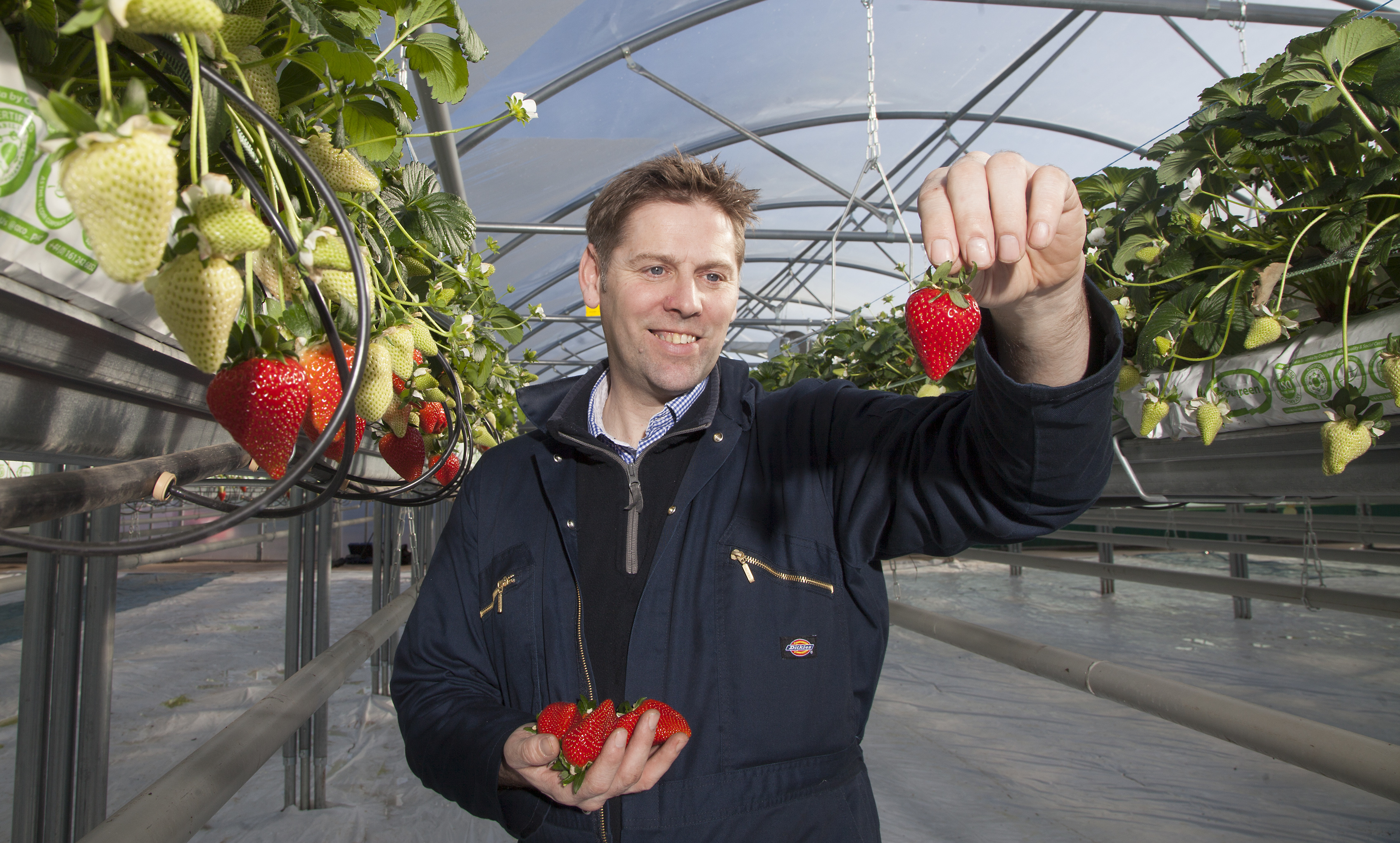An innovative growing system pioneered by an Angus farm means Scottish strawberries will hit the shelves 12 weeks before the season usually starts.
Abbey Fruits in Arbroath uses a biomass heating system with a wood-fired oven to warm the water and air in their polytunnels.
Their crop of lusa strawberries, which shoppers were able to buy on Thursday, is thought to be the earliest harvest ever of Scottish strawberries.
Owner Peter Stirling said it was the third year the farm had used the system, which had produced ripe strawberries earlier each year.
This year’s crop is two weeks earlier than last year and he now anticipates being able to grow strawberries for almost eight months of the year, from March to October.
He expects the technology will mean he is able to grow 170 tonnes of strawberries more than he did last year.
Biomass manager Kenny Shellard, who helped produce the crop at Abbey Fruits, said: “In Arbroath we are ideally situated for early ripeness.
“The biomass system has meant we can now produce strawberries over a longer season each year, allowing us to compete with England and Holland.
“We have also had extra light this year which gave the crop a boost and means it ripened earlier than previous years.”
Wood to feed the biomass boilers is also grown on the farm, ensuring a sustainable fuel source.
It is expected that last year’s cold spell will have also helped to improve the flavour with icy weather chilling the plants and giving them time to generate the natural sugar needed to give the fruit its sweetness.
The crop is being sold exclusively to Waitrose and the Angus firm will continue to supply the supermarket giant until the end of July.
Waitrose’s soft fruit buyer Nicki Baggot said: “Thanks to new varieties and new ways of growing strawberries in Scotland, we believe we’ll have our longest-ever Scottish season with Scottish grown fruit available from now to the end of October.
“This would have been impossible three years ago. Technology and farming techniques are advancing so quickly, that perhaps within another three years, we’ll have year-round Scottish strawberries.
“Being able to offer locally grown fruit also helps us to reduce transport and the associated carbon emissions.”
